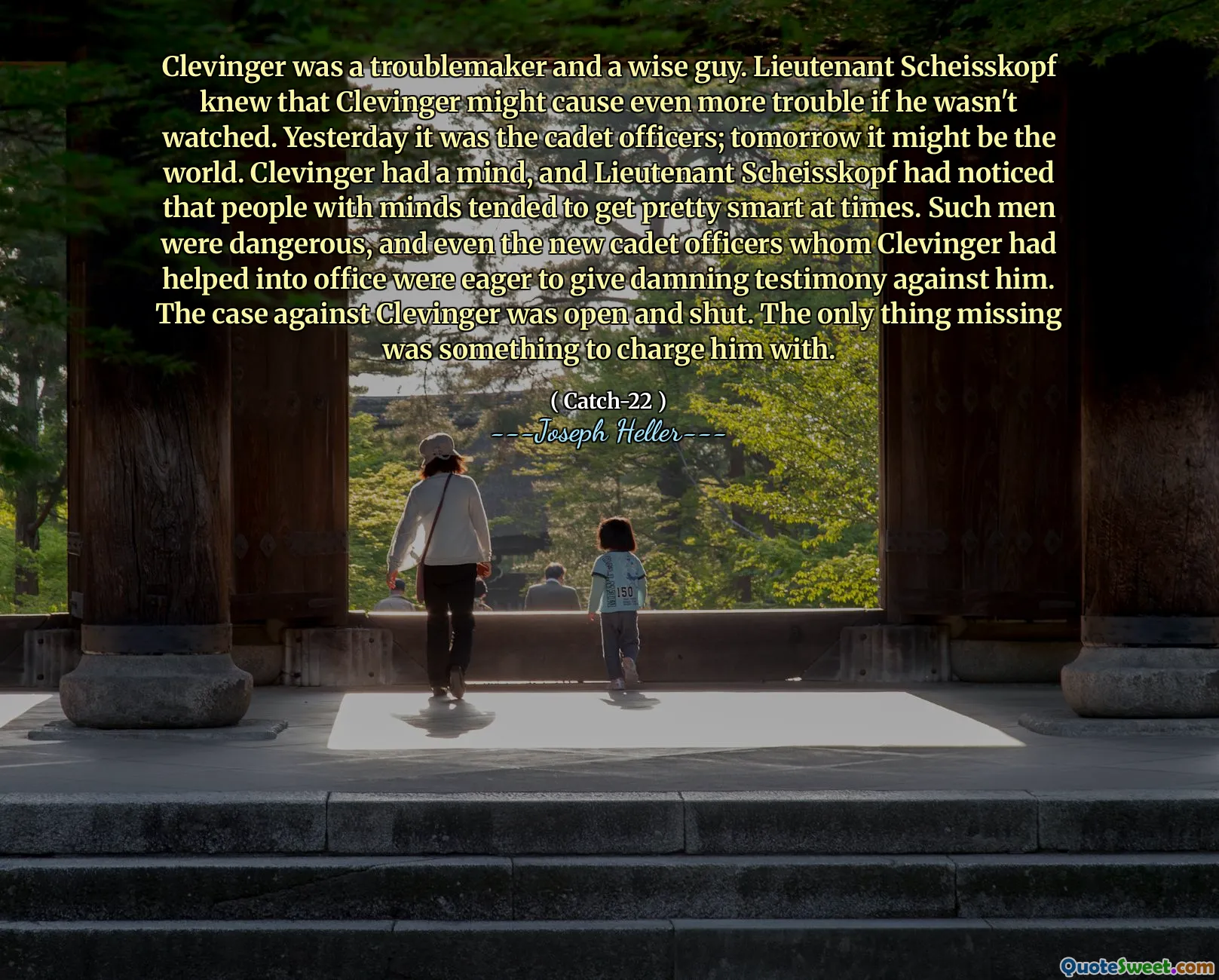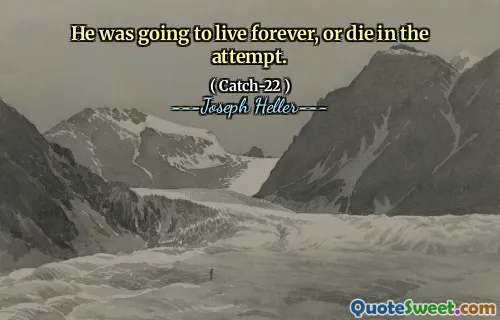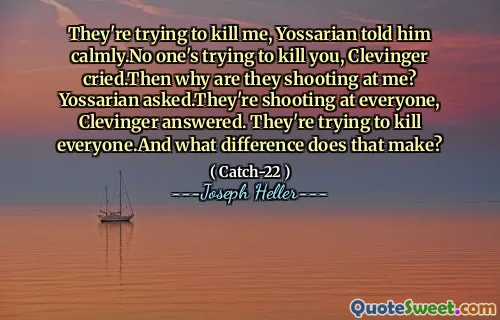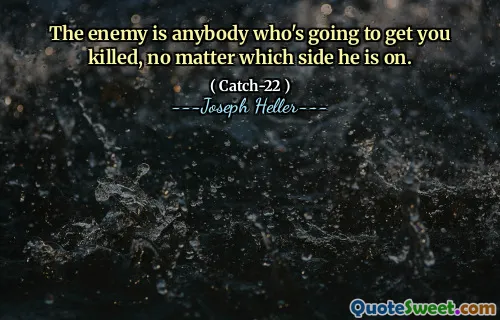
Clevinger was a troublemaker and a wise guy. Lieutenant Scheisskopf knew that Clevinger might cause even more trouble if he wasn't watched. Yesterday it was the cadet officers; tomorrow it might be the world. Clevinger had a mind, and Lieutenant Scheisskopf had noticed that people with minds tended to get pretty smart at times. Such men were dangerous, and even the new cadet officers whom Clevinger had helped into office were eager to give damning testimony against him. The case against Clevinger was open and shut. The only thing missing was something to charge him with.
Clevinger is portrayed as a troublemaker who possesses a keen intellect, which makes him a threat in the eyes of Lieutenant Scheisskopf. The lieutenant is aware that Clevinger's cleverness can lead to potential unrest, not only among fellow cadets but possibly on a broader scale. Such intelligence in individuals often attracts scrutiny and fear, particularly from those in power. Lieutenant Scheisskopf's observations indicate a recognition that intelligent people can challenge the status quo, which makes them dangerous in a hierarchical environment.
Despite the evident animosity towards Clevinger, particularly from the cadet officers he assisted, there seems to be a lack of concrete charges against him. Although the officers are eager to discredit him, the absence of solid evidence highlights the difficulties of addressing subversive behavior within a bureaucratic structure. This situation reflects the absurdity and irony characteristic of the narrative in "Catch-22," where the system struggles to justify its actions against individuals who threaten its authority.











